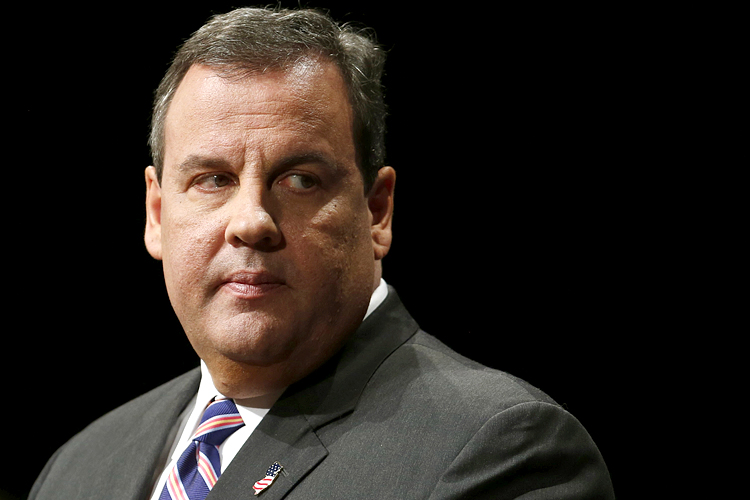The cover story of the New York Times Magazine Sunday was a long profile of New Jersey Gov. Chris Christie titled “Chris Christie Is Back.”
There’s more ambiguity to this title than initially meets the eye. At first reading, it seems to suggest that Chris Christie is “back” to being the Great Republican Party Hope after that nasty little spell that Christie refers to as “the bridge thing.” That he’s “back” to being the shoo-in for the Republican Party presidential nomination that many considered him to be in 2013, when he was securing a blowout reelection. This is the sort of headline interpretation that entices, say, Salon.com writers to read the full article, hoping to argue against it for a piece of Web content.
But that’s not really what the piece’s author, Mark Leibovich — or more likely, his editors who came up with the headline — is intending. The headline and the piece show that Christie is “back” to being himself after keeping a low public profile during the height of the Bridgegate scandal. And there’s no argument there! The Chris Christie that the American media fell in love with — abrasive, sarcastic, surly — is indeed back. Gone are those dark months of introspection and humility. He is “back” to snapping at people in public as a means of brand enhancement.
“Authentic” is a term commonly used to describe Christie, but that doesn’t fully explain what makes him such a talented politician. A more accurate description would be “someone who understands that projecting authenticity is a useful means of building his personal political brand.” “If Christie were not a politician,” Leibovich writes, “he would be perfectly exhilarated to work as a political operative.” He’s someone who “gets the joke,” as Leibovich puts it: He understands, and he knows that you know he understands, the stagecraft of every political action, and this exhilarates him.
The dirty little secret about Christie’s authenticity as a brand has long been how stage-managed it is. The moments that brought him national attention when he first became governor were those videos of him screaming at unionized teachers. For whatever reason, many people found these appealing. It was as though the “real deal” had been captured, impromptu, telling it like it is, and the videos went viral. It didn’t happen quite so organically. Christie’s team was shooting the videos and instructed him to ham it up a bit for the cameras. Well, not “instructed.” He didn’t have to be told.
The danger, though, is that a brand — particularly one as indiscreet as Chris Christie’s — can devolve into shtick. People get tired of it. “When I asked Mitt Romney about Christie,” Leibovich writes, “he generally spoke kindly but warned that the trademark tirades that Christie built his national following on can lose their novelty. They can be new and exciting at first, Romney said, but after bridge-gate, they might come off more like bullying.” (Mittens nails it!) Christie, the political self-operative, is aware of this, and he’s constantly telling Leibovich that he has a wider skill set than people believe. He probably doesn’t help this case, though, as long as he’s still telling people to “sit down and shut up” at public events.
What Leibovich’s piece omits all mention of is a useful metric for determining whether people do get tired of Christie’s schtick after it loses its novelty. Perhaps … a look at the public opinion polls of New Jersey residents? A late-October survey registered Christie’s statewide approval at 41 percent. That’s low.
Christie has always had a lot of outside problems heading into a presidential race. The Bridgegate investigation remains ongoing. Even before Bridgegate, there was already a thick oppo file of sleazy dealings about the guy. The theory behind a Christie candidacy, though, was that his personality and political talent were strong enough to blow past all that. If Republican voters have moved on from their initial infatuation with Christie’s Authentic Jersey-Rage Brand for another, more novel attraction, then there’s not much left.

